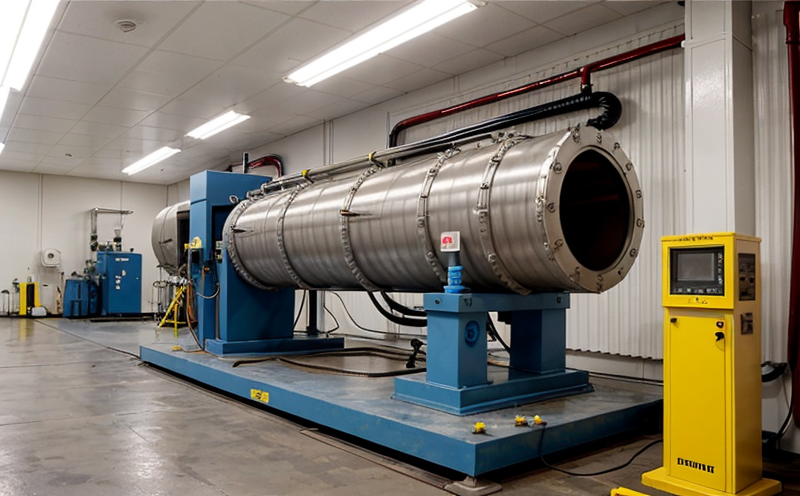ISO 12183 Measurement of Uranium Isotopes in Solutions
The ISO 12183 standard provides a robust framework for measuring uranium isotopes in solutions, which is critical for ensuring the safety and integrity of nuclear fuel cycles. This service is particularly relevant to sectors that handle radioactive materials, such as nuclear power plants, research facilities, and laboratories involved in nuclear fuel processing.
The measurement of uranium isotopes is essential for various reasons:
- Accurate inventory control
- Detection of unauthorized or unintended material loss
- Verification of the composition of nuclear materials
- Ensuring compliance with international regulations and standards
The process involves several key steps:
- Sample Collection: Collecting a representative sample from the solution being analyzed. This is crucial to ensure that the isotopic composition reflects the overall material.
- Precipitation and Separation: The uranium isotopes are precipitated out of the solution using suitable reagents, which helps in isolating them for further analysis.
- Instrumentation: Utilizing sensitive mass spectrometers to measure the isotopic ratios. These instruments can detect minute quantities with high precision and accuracy.
- Data Analysis: Analyzing the data obtained from the instrument, which provides insights into the isotopic composition of uranium in the solution.
ISO 12183 ensures that these measurements are conducted under standardized conditions to maintain consistency and reliability across different laboratories. This standard is particularly important for ensuring that nuclear materials are handled safely and accurately, which is a critical aspect of nuclear safety and security.
| Applied Standards |
|---|
| ISO 12183-1:2014, ISO 12183-2:2016, ISO 17952-1:2010 |
Applied Standards
The measurement of uranium isotopes in solutions is governed by a series of international standards that ensure accuracy and consistency. The primary applied standards are:
- ISO 12183-1:2014: This standard provides the general principles for measuring uranium isotopes.
- ISO 12183-2:2016: It specifies additional methods and procedures for specific applications of uranium isotope measurement.
- ISO 17952-1:2010: This standard outlines the requirements for quality assurance in laboratory testing, which is essential for the accurate measurement of uranium isotopes.
The use of these standards ensures that laboratories performing this service adhere to internationally recognized best practices. Compliance with these standards not only enhances the reliability of measurements but also facilitates international collaboration and data exchange.
Scope and Methodology
The scope of ISO 12183 Measurement of Uranium Isotopes in Solutions is broad, encompassing the entire lifecycle of uranium isotopic analysis. This service covers:
- Sample preparation for analysis
- Precipitation and separation techniques
- Instrumentation setup and calibration
- Data acquisition and processing
- Reporting of results with traceability to international standards
The methodology involves meticulous sample preparation, precise instrumentation, and rigorous quality control measures. The process ensures that the isotopic composition is measured accurately and consistently, which is crucial for regulatory compliance and safety.
Use Cases and Application Examples
- Nuclear Fuel Fabrication: Ensuring the correct isotopic composition of uranium in fuel rods to enhance reactor performance and efficiency.
- Research and Development: Investigating the effects of different isotopic compositions on nuclear reactions.
- Safety Audits: Verifying that nuclear materials are stored and handled safely, adhering to international safety guidelines.
- Environmental Monitoring: Detecting unauthorized emissions or leaks of uranium isotopes into the environment.





